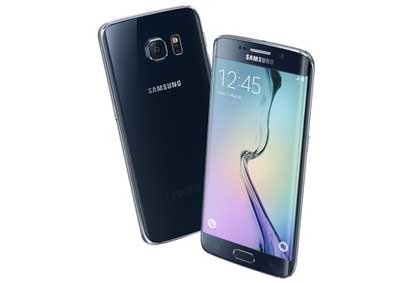
Smartphones have clear-ly evolved. In this new era, a number of apps are now connected to medical health care and safety. These apps are very easy to operate and can help in a case of emergency. Here are ways your smartphone can save your life.
Share location
Google’s new personal safety app,
Trusted Contacts , is designed to help in cases of emergency. All you have to do is download the app, and then allot
Trusted status to friends and family. This allows them to see your activity status. It then opens a direct line of sharing between you and your loved ones. If you feel threatened, you can share your location with your contacts and vice-versa. If there is no cause for alarm, you can deny the request. But in a case where you don’t respond after five minutes, your location will automatically be shared with your friends and family anyway. The app displays your last known location to friends and family even if your phone is offline.
Another life-saving app is MPower , it is capable of detecting and tracking the symptoms of Parkinson’s. Parkinson’s Disease is a long-term degenerative disorder of the central nervous system that mainly affects the motor system.
Parkinson’s detection
PD is a movement disorder related to loss of dopamine- producing cells in the midbrain. Symptoms of the disease include tremor, changes in gait, slowness (bradykinesia) and rigidity. The application analyses voice patterns to detect the degenerative disease by simply speaking into the phone. Around 70-90 percent of patients experience vocal impairment following the onset of the disease. The app also features finger tapping, walking and memory games to monitor the progression of the illness.
HIV testing
A dongle created by Columbia University researchers can turn any smartphone into an HIV and Syphilis tester with a tiny drop of blood. Within 15 minutes, one can get a result. The device doesn’t need a battery to work; it draws power from the Smartphone. According to the paper published by the researchers in Science Translational Medicine , the dongle performs enzyme-linked immunosorbent assay (ELISA) to detect HIV antibody, treponemal-specific antibody for Syphilis, and non-treponemal antibody for active Syphilis infection.
With the apps, Doctor Mole and
SkinVision , one can easily detect skin cancer using their Smartphone. They let you take photos of the skin then proceed to analyse the symmetry, regularity of borders and colour to see if there is significant change.
Skin care
The app will flag any changes and also flag any moles that might need further examination by a dermatologist.
A company named AliveCor launched a Smartphone case that doubles as an electrocardiogram (ECG) so you can keep track of your heart activity through your fingertips. Users simply rest their fingers on the case and the electrical impulses are turned into ultrasound signals and transmitted to the phone’s microphone. Then an algorithm can analyse the heart patterns and identify if there is a risk of stroke or cardiac arrest, even before symptoms reveal themselves.
Eye cancer
An eye cancer called Retinoblastoma
can easily be detected using a Smartphone camera. This cancer grows quickly, but if detected early, can save the life of the child and possibly prevent eye removal. It is very easy to detect using a Smartphone camera. All that needs to be done is take a photo of the eye using a flash. If one of the pupils appears white instead of black similar to the eye of a cat, reflecting light, it could be an indicator of an eye tumour. If it keeps on happening in photos, it’s best to go and see an ophthalmologist.
Suicide prevention
A Friend Asks is a free app by the suicide prevention group, Jason Foundation, that aims at teaching its users how to recognise the signs that someone close to them, such as a friend or family member, may be thinking of committing suicide and how to reach out to them. It provides users with a list of common warning signs of suicide ideation, as well as do’s and don’ts for such a sensitive situation.
Security alert
With Lifeline Response app, users are asked to put a thumb on the smartphone screen feeling threatened. If the thumb leaves the phone’s screen during an attack, an ear-piercing sound is emitted from the phone and a message goes to authorities who are ready to help. The app can also be used to tag suspicious activities in neighbourhoods and alert others nearby.
Conclusively, the Save Me Pro app developed by 12-year- old Dylan Puccetti of Galveston could save a life. It allows users send out emergency alert to a pre-arranged list of contacts simply by hitting the power button eight times.
Hi! I am a robot. I just upvoted you! I found similar content that readers might be interested in:
https://thecircularngr.com/2018/01/how-your-smart-phone-can-save-your-life/
The smartphone technology is advancing at an incredibly rapid pace. I can't wait to see what's in store for us in the next decade. Great post, keep it up!